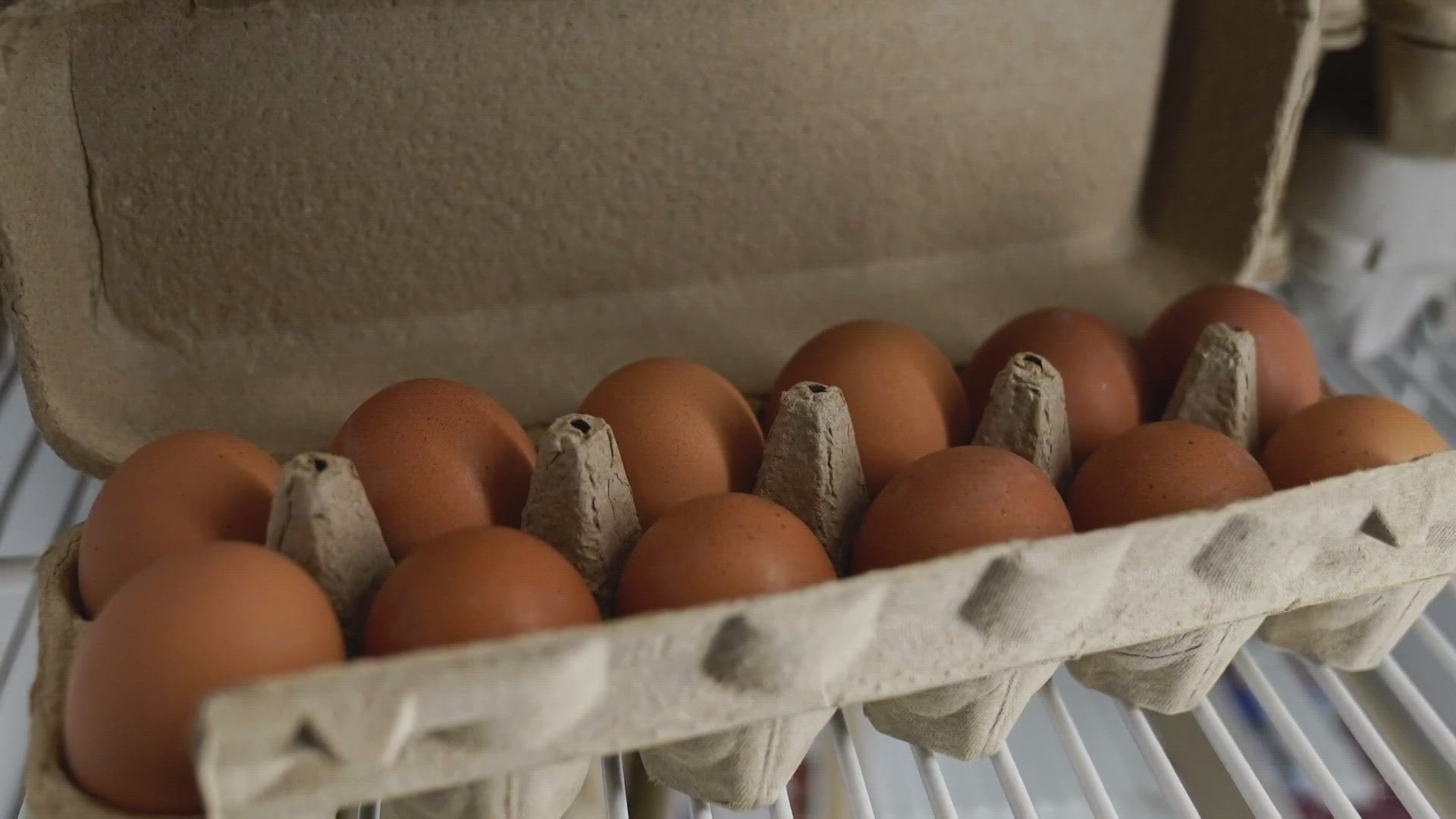VENICE, Illinois — On a quiet Sunday afternoon, barges and railcars haul grain and produce past a small blue collar town along the banks of the Mississippi River.
A green sign on a fence post just outside city limits say 1,900 people live in Venice, Illinois.
"Probably below that now," Venice Mayor Tyrone Echols said.
The 85-year-old stood outside the two-story City Hall building and recalled better days from decades gone by.
"That used to be a grocery store right there," he said as he pointed across the intersection toward 6th Street and Broadway.
A gas station with a gambling arcade stands in its place now. On the sidewalk out front, shoppers can pick up their purchases from a large Amazon lockbox.
"We've been fighting for a long time," Echols said. "Every council meeting, I'm being pressed about it."
Deanna Koelker, a mother with several school-age children, said the lack of healthy grocery options in town can sometimes alter her cooking habits.
"Sometimes, I want to just go run to the store and grab some onions or a tomato," she said. "Just when I'm cooking and I realize that I didn't have it, I have to go all the way to Granite City. Even the Dollar Store that we have around here don't carry fresh produce."
"We are a food desert," Ed Hightower said. "Folks have to travel about six miles to get nutritious food, vegetables, fruits."
Hightower, a former educator and NCAA referee who sits on the board of trustees at Southern Illinois University, has been pleading with grocery stores to bring healthy food options here.
"I talked to so many name grocery stores," he said. "And you know the bottom line? They said, 'It's not profit-driven. I'm not going to come in there.'"
Few signs of decline are more devastating to a small town than when the local grocery store closes up shop. Those departures have occurred more frequently in recent years.
The pressures of the pandemic disrupted supply chains, drove operating costs higher, and forced hundreds of smaller, local grocery stores to shut their doors.
Shoppers have to drive farther for fresh produce, adding an additional travel cost to food prices, which jumped 11.1% from 2017 to 2021.
People without reliable transportation options face even steeper hurdles to find fresh food.
"There are several families who don't have cars," Hightower said.
A local bus driver said many of his daily riders make stops out of town looking for food.
The extra barriers push some people to choose inferior food options at convenience stores or fast food restaurants to tide themselves over until the next healthy meal, which can contribute to worse health outcomes over time.
"You are definitely headed for a shorter lifespan," Hightower said.
Takisha Curry grew up in Venice. She eventually bought the home next door to her father, a Vietnam veteran. She said several of her elderly neighbors sometimes have car trouble and rely on help from someone else to make sure their pantries are stocked.
"We have to go a far distance to get groceries," Curry said in between brush strokes while she applied a fresh coat of paint to her front porch. "It's a task to get someone to help drive them to get the groceries. I'm sure they have to pay to help or get on the bus to get groceries."
Research indicates that public health can suffer in food deserts where fresh food is either not available or affordable.
Some rural stretches of southern Illinois don't have a grocery store anywhere in the entire county, according to interactive data compiled by the U.S. Department of Agriculture.
Soon, the township of Venice could launch its own municipal-owned grocery store with funding from the state.
It would run a lot like a public utility, according to Deputy Gov. Andy Manar, who said Illinois hopes to emulate a plan in rural Kansas. He described it as "the public option for grocery."
"There's a cluster of small towns there that has a municipal-owned model that works," Manar said. "What we learned in Kansas was the upfront cost for a municipal-owned grocery store outweighs what a smaller community can afford."
The Illinois state legislature approved a plan last week to spend $20 million dollars to help small local grocery stores stay open and to help new co-ops or municipal governments open up grocery stores in food deserts.
The proposal gained bipartisan support from every member of the Illinois Senate. It sailed through the House with relative ease. Only 17 of 40 Republicans voted against it.
The funding would be available to co-ops or other municipal governments who need a kickstart to buy building space, big freezers, computer systems and inventory to open their doors.
"Then, suddenly, you're in the ballgame," Manar said.
He envisions a plan where eventually state incentives would help steer fresh produce Illinois farmers to those grocery shelves.
"Oh, that would mean the world," Curry said. "Oh, yes. You could just walk down the street and get your groceries and come back. Oh, yeah."
To watch 5 On Your Side broadcasts or reports 24/7, 5 On Your Side is always streaming on 5+. Download for free on Roku or Amazon Fire TV.

